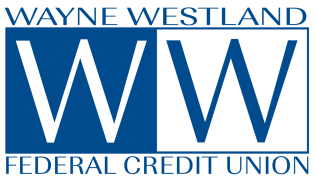In this age of technology, the idea of the envelope system seems to have faded away. Which is a shame. The envelope system is a great way to take charge of your finances and is great if you’re just starting out or want to be more hands-on with your money.
What is the Envelope System?
First, you create a monthly budget which should include rent/mortgage, utilities, groceries, dining out, gas, health expenses, car maintenance, personal expenses, entertainment, gifts, etc. Determine a dollar amount for each category. A good rule of thumb is to start with the 50/30/20 budget: 50% of your after-tax income towards rent, utilities and groceries, 30% towards things like clothes, eating out or gifts and at least 20% to paying off debt or adding to your savings account. Click here for budgeting tips.
After that, you write each category and the dollar amount on an envelope. Since your rent and utilities usually aren’t paid with cash, you won’t create envelopes for those categories. Once you have your stack of envelopes, you put in cash to cover that dollar amount with each paycheck. Example: You’ve allotted $400 per month for groceries and you get paid bi-weekly. You’ll put in $200 from each paycheck into your Groceries envelope.
When it’s time to go grocery shopping for the week, you take $100 out of the envelope and don’t spend a penny more at the grocery store. If you forget your envelope, turn right around and head home to get it!
Paying Online?
So, what if you pay for some of your expenses online? Still create the envelope with the category and amount on it, just don’t put cash in it. Each month write down exactly what you spend in that category on the envelope so you can track the expenses. Be sure to not go over the budget you set for that category.
Ran out of Cash?
Hey, it happens to the best of us. We drive more than we planned or eat out more than expected. The benefit of the envelope system, if you do it right, you can’t spend more than you’ve budgeted. You’re on the honor system here and are not allowed to take money out of other envelopes to cover your extra expenses. Running out of restaurant money? Time to look in the fridge for leftovers! Sticking to the system helps you stick to your budget.
In Case of Emergency
You can never predict when a car accident or medical emergency may crop up. If an emergency occurs, then it’s time to shift the money around in your envelopes. If you’re married, determine the best way to make it work financially. Adjust your budget and go from there. Just remember, a new pair of shoes is not an emergency!
Leftover Money
Still have money in some of your envelopes at the end of the month? Congratulations! If this is the case, then you may want to splurge a little like getting takeout or hitting your favorite fancy coffee shop. Better yet, take that money and put in your savings. You may even want to contribute to an emergency fund so you’ll never have to adjust your envelopes like described above. Learn more about emergency funds here.
The Pros of the Envelope System
There are several benefits to using the envelope system:
- Fewer overdraft fees
- Awareness of your spending habits
- Curb overspending and impulse purchases
- You’ll spend less
When you go cash-only in your day-to-day spending, you’ll soon discover you can’t spend more than you have. You’ll also be more aware of what you’re spending and possible gain more of an emotional attachment to your money because of it.
The Cons of the Envelope System
- It can be time-consuming determining your budget and withdrawing all of that cash for the month.
- You may be risking loss or theft when carrying around large amounts of cash.
- You won’t have the protection that comes with debit or credit card usage.
Ideally, you’ll only need to use the envelope system for a few months to get a handle on your spending habits and monthly cash flow. However, there are some people that never stop using this system. The decision is up to you!


